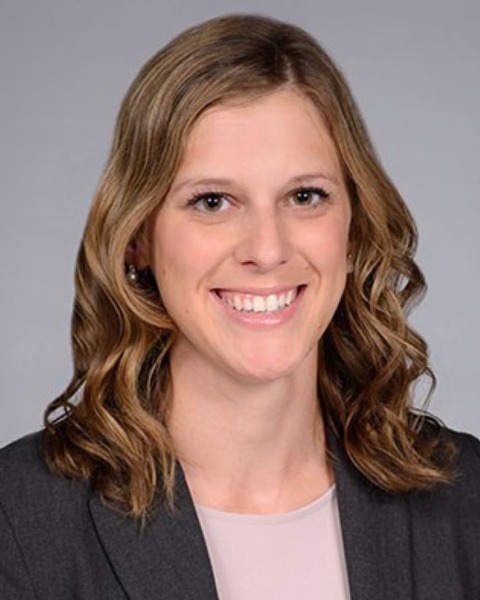Medical Education: Resident
Medical Education 7: Resident 2
543 - Beyond Residents-As-Teachers: The Development of an Advanced Medical Education Elective for Pediatrics Residents
Saturday, April 29, 2023
3:30 PM - 6:00 PM ET
Poster Number: 543
Publication Number: 543.229
Publication Number: 543.229
Christina M. McKinney, Medical College of Wisconsin, Milwaukee, WI, United States; Adam C. Patterson, University of Louisville School of Medicine, Louisville, KY, United States

Christina M. McKinney, MD (she/her/hers)
Pediatric Hospital Medicine Fellow
Medical College of Wisconsin
Milwaukee, Wisconsin, United States
Presenting Author(s)
Background: An advanced medical education curriculum can encompass themes that transcend residents-as-teachers curricula for residents interested in careers in medical education, but literature is scarce regarding the development and implementation of such a curriculum in residency.
Objective: To develop and implement a novel advanced medical education elective for pediatric residents, utilizing a systematic framework to evaluate its effect on knowledge, skills, attitudes, and professional identity formation for medical educators in training.
Design/Methods: Kern’s Six Step Approach to Curriculum Development was applied to create a two-week long elective for pediatrics residents. Faculty were recruited based on prior expertise. Residents developed hands-on teaching sessions for medical students and received direct feedback from residents and students regarding their teaching skills. The curriculum was evaluated using qualitative and quantitative feedback via electronic survey with five-point Likert scale and open-ended questions, group discussions, and post-elective evaluations. The New World Kirkpatrick Model was utilized to evaluate the effectiveness of the curriculum.
Results: Five residents, 17 students, and 22 faculty participated in the pilot elective. Lectures, expert panels, group discussions, feedback sessions, and teaching sessions were seen as effective instructional methods (Fig. 1). All residents were satisfied with the elective and its educational strategies, developed useful skills, and plan to utilize skills acquired during the elective. Residents believed the elective advanced their professional identities (Fig. 2). Most students found the resident-led sessions helpful (mock parent calls, 82%, 14/17; procedure skills, 94%, 16/17; hand-offs, 94%, 16/17; “sick or not sick,” 94%, 16/17; neonatal simulation, 88%, 15/17). Newly acquired skills included creating interactive and graduated learning and learning objectives (Table 1). Redundancy was cited as a weakness (Table 1). Faculty recommended more formal feedback on resident-led teaching sessions and further incorporation of medical students in the future.
Conclusion(s): Our medical education elective was designed collaboratively with residents on a medical education distinction track. High levels of satisfaction, improvement in perceived competence as medical educators, and professional identity development were notable achievements of the pilot course. An advanced medical education elective can advance the larger goals of a residency program, and our approach can be adapted by other institutions.
.png)
.png)
.png)
